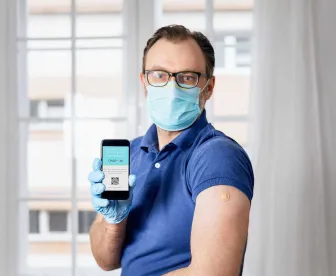Massachusetts Governor Charlie Baker and Rhode Island Governor Dan McKee recently announced that they are considering implementing vaccine passport programs in their respective states. Baker stated that he is working with other states to use a QR code system that allows users to scan to verify vaccination status. In Rhode Island, the Department of Health announced that it, too, is working on an app-based QR code program. According to the Providence Business News, a spokesman for the Rhode Island Department of Health stated that the app “would function as a smart health card.”
What is a smart health card or vaccine passport and what are some of the privacy concerns inherent in using such technology? Any time you use technology to store high-risk data such as medical information, that raises the bar for the protection of those data. The best-case scenario is that there should be agreement on privacy protections so the individuals who use the app or QR code system can be assured that their data will be secure. In using a vaccine passport or QR code technology, some issues to consider include what data are collected, whether location data are collected, how data are stored and shared with third parties, and what privacy and security safeguards are in place to protect the data. Having a convenient way to provide vaccination information such as a vaccine passport or smart health card will work best when users can trust that their information is private and secure.


 />i
/>i

